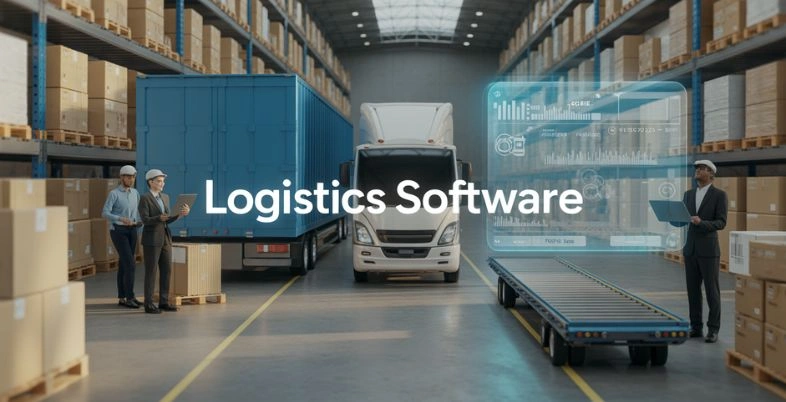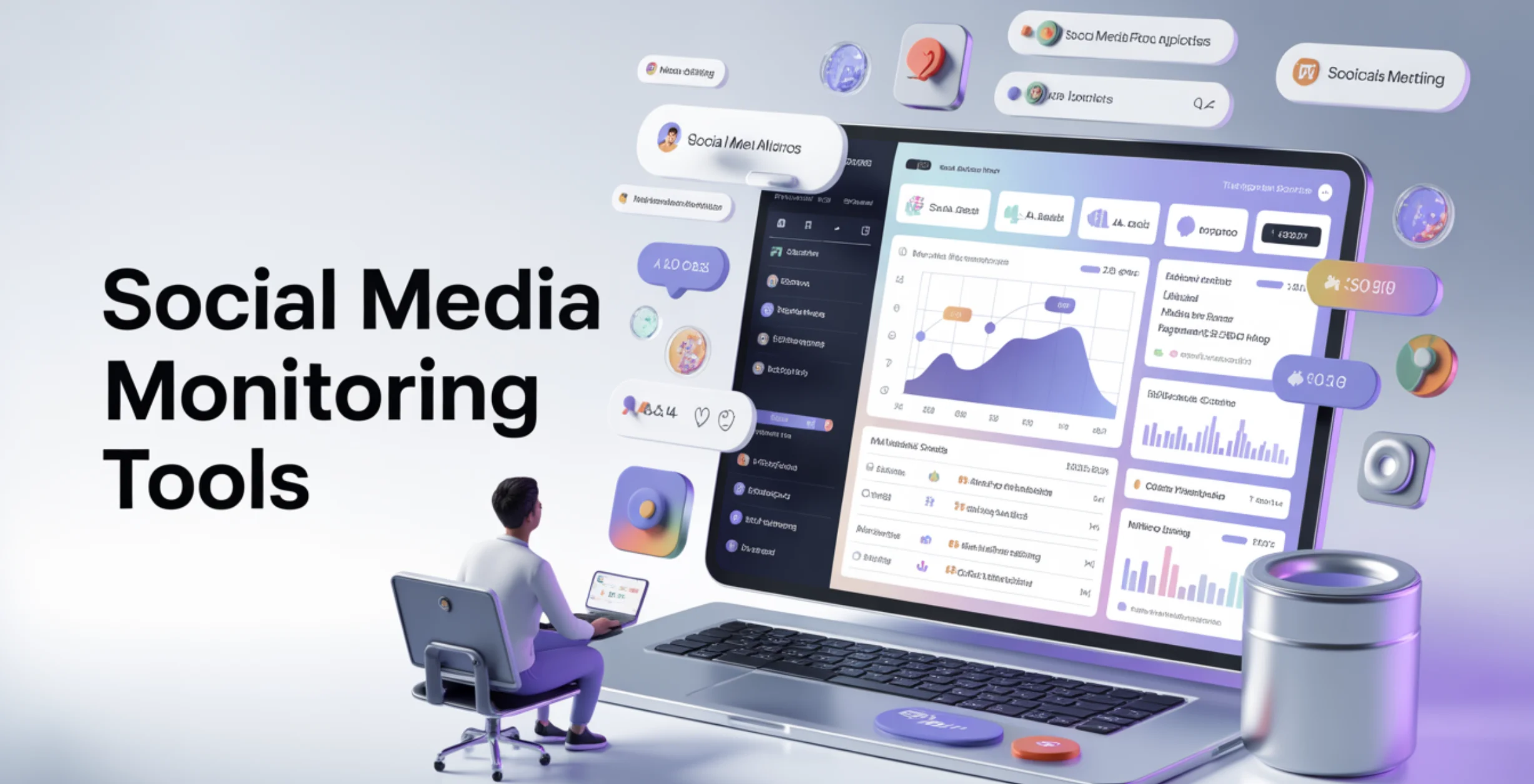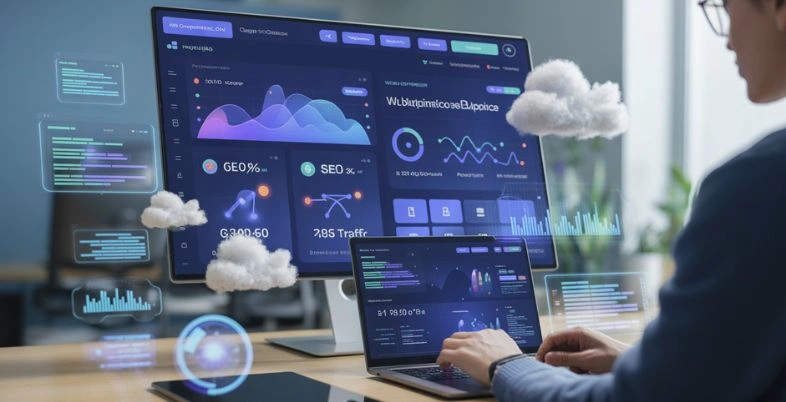The modern world of digital transactions and online services has made information confidentiality one of the keys to successful business activity, and the General Data Protection Regulation (GDPR) has become an industry standard in preserving personal data in the structure of any organization worldwide. With businesses amassing, manipulating, and retaining huge volumes of personal information, there has never been a greater necessity for powerful GDPR Compliance Software. These advanced systems are all-inclusive and also act as a guide to the organizations in the dynamic maze of privacy laws, as well as being efficient in conducting business operations.
Ensuring proper GDPR Compliance Software is actually more than just ensuring compliance with guidelines and regulations, as it is a strategic approach towards developing customer confidence, evading stiff fines, and gaining a competitive edge in a privacy-sensitive environment. The use of a modern compliance platform suggests automation of the compliance process, including the workflow, real-time monitoring, and intelligent risk assessment that turns a rather lengthy, time-consuming manual process into a streamlined and efficient one. You might be a startup that is dealing with your first customer data, or you are an enterprise working with millions of records; in either case, a good compliance solution can mean the success of smooth operations or expensive violations of regulation.
What is GDPR Compliance Software?
The GDPR Compliance Software can be considered an example of the specialized technological solutions that will assist organizations in complying with the requirements of the General Data Protection Regulation. Such platforms not only incorporate a collection of privacy management tools, workflows toward automating compliance, and monitoring systems into a single ecosystem but also streamline a complex regulatory process.
These software solutions allow businesses to be consistently compliant by exploiting the use of advanced features like data mapping, consent management, breach notification systems, and generation of audit trails, providing businesses with an imperative advantage of minimizing the administrative overhead that is normally incurred with the management of privacy.
The current generation of compliance software is fast changing and capable of dealing with the complexity of the compliance demands associated with GDPR, including such features as fully-automated processing of data subject requests, real-time risk-assessment services to enable companies to quickly recognize and prevent privacy risks.
Essential Features to Look for in GDPR Compliance Software
In assessing the potential compliance solution, it becomes important to understand the fundamental functions that reveal the effective platforms against the basic tools so as to make the appropriate decisions. The appropriate GDPR Compliance Software should provide coverage of the regulatory needs in a comprehensive manner and yet offer simple interface mechanisms that allow its teams to handle even complicated compliance activities with ease.
- Visualization of Data and Inventory: Entering an era of extreme visibility into where personal data resides, how it moves through systems, and what processing activities are happening across your entire organizational infrastructure.
- Automated Consent Management: The simplification of the collection, storage, and revocation of user consent to allow the user to follow the strict GDPRs of consent with a high-quality user experience.
- Breach Notification Systems: Real-time notification systems that identify possible security breaches and automate the work required to notify the subjects of a breach within the 72 hours required by the GDPR breach reporting provisions.
- Risk Assessment Tools: Smarter remedies systems that detect threats to concealment, evaluate the conceivable effects thereof, and recommend viable measures to control implementation.
- Audit Trail Creation: Multi-faceted logging and documentation functions that build up a record history of all processing of data, adjustment of policy, and regulatory compliance measures to meet regulatory audits.
Comparison Table for GDPR Compliance Software
| Software Name | Rating | Best Feature |
| OneTrust | 4.3/5 | Comprehensive privacy management platform |
| Sprinto | 4.9/5 | Automated evidence collection and monitoring |
| Transcend | 4.6/5 | Advanced data deletion and retention workflows |
| Drata | 4.8/5 | Real-time compliance monitoring and reporting |
| PrivIQ | 5.0/5 | Interactive dashboard with risk assessments |
| LogicGate | 4.6/5 | Visual reporting and risk management |
| AuditBoard | 4.7/5 | Workflow automation for compliance tasks |
| Netwrix Auditor | 4.4/5 | Comprehensive data discovery and classification |
| Enactia | 4.2/5 | Built-in compliance assessments and monitoring |
| Wired Relations | 4.1/5 | Efficient data mapping and inventory management |
Top 10 GDPR Compliance Software
1. OneTrust

Rating: 4.3/5
Website: https://www.onetrust.com/
Best Use Cases: Enterprise privacy management, cookie compliance, vendor risk assessment
OneTrust is an end-to-end privacy management software capable of providing comprehensive privacy management solutions to organizations that want to be compliant with GDPR in terms of complying with several regulatory frameworks. The platform is strong in its use of user-friendly dashboards, which make challenging work on compliance much simpler and workable, with a wide range of options when customizing it to various organizations.
OneTrust has a highly developed data mapping system and consent management functions, allowing the company that uses it to have fine-level control over its data processing. Software-based method of privacy management that the software offers covers all processes that manage data- everything starting with data discovery to its continual compliance is managed by this software, which is very good in enterprises that deal with complex data environments.
The value addition provided by its vendor risk management module is its ability to aid organizations in assessing as well as monitoring the state of compliance among third parties to provide a wholesome protection throughout the whole chain of data processing.
Key Features:
- Data mapping inventory
- Vendor risk management
- Privacy request assessments
- Incident breach response
- Pre-built compliance templates
Pros:
- Assessment automation capabilities
- Visual data flow representation
- Free trial available
Cons:
- Slow data discovery
- Limited risk treatment
- Steep pricing structure
Pricing: Custom pricing
2. Transcend

Rating: 4.6/5
Website: https://transcend.io/
Best Use Cases: Automated DSAR management, data deletion workflows, consent optimization
Transcend is a revolutionizer of privacy compliance by automating the implementation of GDPR Compliance Software with particular emphasis on automating data subject access requests and management of consent processes. Its intelligent automation features enable a significant decrease in the manual intervention required, while at the same time, a high standard of accuracy is being observed in compliance operations. The extensive consent management system fits into different regional needs, devices, and domains, giving organizations flexible solutions that grow with business.
The data deletion and data retention capabilities available in Transcend can be highlighted due to their advanced capability to provide high-order automation within an organization and support their organizational data lifecycle policies without the need to have a large degree of manual intervention. The platform also has real-time reporting features that allow organizations to have a real-time perception of compliance and hence prevent the possibility of the emergence of a bigger problem that is a regulatory violation.
Key Features:
- Automated DSAR management
- Comprehensive consent systems
- Privacy policy management
- Advanced data deletion
- Compliance audit logs
Pros:
- Streamlined erasure workflows
- Step-by-step privacy guides
- Smart content classification
Cons:
- Technical glitches reported
- Less mature platform
- Limited training materials
Pricing: Tiered pricing structure with custom enterprise solutions available
3. Sprinto

Rating: 4.9/5
Website: https://sprinto.com/
Best Use Cases: Automated compliance workflows, risk assessment, evidence collection
Even though there are other compliance solutions on the market, Sprinto stands out as an easy-to-operate compliance software because the difficulty of the GDPR is simplified by streamlining it into repeat automated processes using a customizable platform. The frameworks and templates that are set out in the software offer an efficient method that helps organizations streamline the relevant GDPR requirements without having great legal expertise.
Its compliance service is a system-wide compliance review, which includes the formulation of policy, internal audit, risk wash, and asset integration within one ecosystem. What relates to Sprinto is its automated evidence collection capabilities that make it stand out from competitors by monitoring and documenting continuously in a manner that makes auditing ready. Other benefits of using the training modules on the platform include the in-built education component, which allows teams to know the requirements of compliance without committing other financial resources to education programs.
Key Features:
- Guided risk mapping
- Customizable policy templates
- Automated breach notifications
- Comprehensive data mapping
- Integrated training modules
Pros:
- Vetted expert network
- Tech-specific playbooks
- 100+ system integrations
Cons:
- No on-premise deployment
- Frequent product updates
- Limited customization options
Pricing: Subscription-based model with scalable pricing tiers
4. Drata

Rating: 4.8/5
Website: https://drata.com/
Best Use Cases: IT infrastructure monitoring, security incident response, automated compliance
Drata offers end-to-end GDPR Compliance Software functionalities on its powerful platform that focuses on the monitoring of IT infrastructure and automation compliance. The strength of the software is its capability to give the user a real-time view in regard to security controls and also continuous monitoring of compliance in different technology environments.
It’s pre-designed, ready-to-use GDPR control library saves a lot of implementation time as it allows ready-to-use, predefined development of GDPR control frameworks which cover typical GDPR compliance cases. Vendor management features of Drata will make certain that third-party relationships stay in line with the guidelines of compliance, which will be ensured by an automated monitoring and reporting system.
The aspects of visibility into the security posture of the platform permit organizations to be in full control of their compliance rates and to be in a position to establish areas of possible vulnerability before these areas can affect regulatory compliance.
Key Features:
- Pre-built GDPR controls
- Information security policies
- Framework cross-mapping
- Vendor management systems
- Security posture visibility
Pros:
- Highly customizable platform
- Real-time monitoring
- Robust automation capabilities
Cons:
- Misleading readiness scores
- Security credential requirements
- Partner onboarding issues
Pricing: Flexible pricing based on organization size and feature requirements
5. PrivIQ

Rating: 5.0/5
Website: https://www.priviq.com/
Best Use Cases: Privacy risk assessments, compliance tracking, collaborative privacy management
The PrivIQ data privacy management platform also provides outstanding GDPR Compliance Software by automatically discovering all personal data in a given organization, and then classifying it according to its sensitivity levels and used applications. The interactive dashboard presented in the software helps it assess the current status of compliance in real-time and allows collaborative workflows that improve team efficiency when performing work on privacy management.
Its privacy impact assessment features assist organizations in conducting an assessment of the implications of new processing before doing it, and therefore, no problems of compliance are introduced. The risk assessment tools given by PrivIQ allow determining the vulnerabilities that may affect the privacy of your application and offer suggestions that may lead to mitigation efforts. The compliance-ready audit reporting functions of the platform facilitate the preparation process under the control of regulatory authorities, as it automatically prepares full documentation that can be presented to auditors.
Key Features:
- Compliance readiness tracking
- Interactive real-time dashboards
- Privacy risk assessments
- Impact assessment tools
- Collaborative workflow systems
Pros:
- User-friendly navigation interface
- Responsive customer service
- Comprehensive training materials
Cons:
- Limited reporting capabilities
- Missing data discovery
- Less flexible customization
Pricing: Scalable subscription model with enterprise customization options
6. LogicGate

Rating: 4.6/5
Website: https://www.logicgate.com/
Best Use Cases: Risk management automation, visual compliance reporting, data inventory management
LogicGate has automated compliance offerings that are specifically unrivaled in GDPR management by applying advanced data mapping, incident management, as well as risk analysis functions. The advantage of the platform is that it provides the capability to build pervasive data inventories, which monitor all the personal information gathering and processing activities in organizational systems. Its subject access request management capabilities make its complex Individual data requests response process much simpler and GDPR compliant in terms of timelines.
The incident response management tools offered by LogicGate help to encapsulate the methods of handling personal data violations and security incidents. Visual reporting tools help organizations in report preparation efficiently and allow them to develop persuasive presentations that can enhance the perception of stakeholders and executives of compliance status and risk profiles.
Key Features:
- GDPR risk assessments
- Subject access management
- Incident response systems
- Audit-ready reporting
- Cross-team collaboration
Pros:
- Automated GRC functions
- Flexible customization options
- Visual risk reporting
Cons:
- Steep learning curve
- Higher price point
- Performance lagging issues
Pricing: Premium pricing tier with comprehensive feature access
7. AuditBoard

Rating: 4.7/5
Website: https://auditboard.com/
Use Cases: Risk governance, audit management, workflow automation
AuditBoard has made the process of compliance with GDPR a lot easier by automatically managing the risk governance and the process of compliance in the organizational departments in their cloud-based software. Automation of the software workflow significantly reduces the manual work entailed in the process of tracking progress, documentation, and reporting endeavors.
The risk assessment modules are customizable, and organisations can therefore configure the assessment processes to match the industry requirements and existing risk profile. AuditBoard workspaces are real-time that ensuring that compliance staff, auditors, and stakeholders have proper communications and alignments. The tools of the platform, like advanced reporting and analytics, can: provide an immaculate view of what is studied and how the compliance is performing, and where its enhancement and streamlining can take place.
Key Features:
- Customizable risk assessments
- Controls audit management
- Workflow automation systems
- Collaborative workspaces
- Advanced analytics reporting
Pros:
- Easy deployment process
- Control profile pages
- Stakeholder collaboration features
Cons:
- Large data handling issues
- Slow customer support
- Delayed feature updates
Pricing: Enterprise-focused pricing with scalable feature sets
8. Netwrix Auditor

Rating: 4.4/
Website: https://www.netwrix.com/
Best Use Cases: Data visibility, threat detection, compliance auditing
Netwrix Auditor offers end-to-end auditing compliance solutions, which equip companies with the much-needed visibility of data access, user-activity monitoring, and system configuration of changes in various setups. The solution proves to be excellent at detecting and researching security threats, in addition to automating the preparation of GDPR compliance audits by collecting and reporting on evidence. Its advanced search and filter capabilities allow the organization to find and secure critical information in on-premises, cloud, and hybrid environments in a short time.
The Netwrix real-time alerting system immediately alerts the user about the suspicion of the activities carried out and possible compliance breach. The advanced threat detection features of the software assist the organization in detecting and counteracting advanced persistent threats that may pose a threat to the security of personal data.
Key Features:
- Sensitive data discovery
- Real-time threat alerts
- Advanced search filtering
- Sophisticated threat detection
- Customizable compliance reports
Pros:
- High-value security alerts
- Flexible event monitoring
- Microsoft integration support
Cons:
- Less intuitive interface
- Limited training materials
- Slow technical support
Pricing: Subscription-based with modular pricing options
9. Enactia

Rating: 4.2/5
Website: https://enactia.com/
Best Use Cases: Compliance assessments, risk monitoring, automated checks
Enactia offers end-to-end GDPR Compliance Software platforms that cover the whole compliance process in terms of automated compliance checks and ongoing risk tracking. By using the embedded assessment functions of the software, organizations can know their level of compliance with the provisions of GDPR, as well as where they have loopholes that must be addressed on an urgent basis.
Its breach and incident management gives an orderly mechanism for managing security incidents and being in line with regulations. Enactia has an intuitive dashboard that breaks down complex compliance data into actionable intelligence that aids in sound decision-making. The templates available in the platform simplify the reporting process by offering standard definitions to comply with regulations of documentation, but offer an organization the ability to customize the form.
Key Features:
- GDPR gap assessments
- Privacy security evaluations
- Incident management systems
- Intuitive risk dashboards
- Customizable reporting templates
Pros:
- Comprehensive learning content
- Complete compliance suite
- Responsive customer support
Cons:
- Limited ticketing integrations
- Small business restrictions
- No on-premise support
Pricing: Tiered subscription model with business-specific features
10. Wired Relations

Rating: 4.1/5
Website: https://www.wiredrelations.com/
Best Use Cases: Data mapping, consent management, vendor risk assessment
Finally, adding to the full list is Wired Relations, whose cloud platform is also offering viable solutions to get through with GDPR compliance, which it does by efficiently mapping data and listing all inventories. The software allows organizations to become aware of the flows of personal data processing as well as risk areas that need to be addressed or tightened at the moment. Its consent management system offers centralized collection, storage, and management of preferences across various channels such as web forms, email campaigns, as well as landing pages. Third-party risk assessment capabilities developed by Wired Relations allow an organization to analyze the status of vendors and ensure control over data processing alliances.
Smart audit reporting characteristics assist smart reporting of the intelligence platform in creating compliance-ready documentation, which can be sent automatically, as a regulatory requirement, but also decreases the amount of time spent on compliance-ready manual reporting.
Key Features:
- Sensitive data classification
- Third-party risk assessments
- Policy procedure guidelines
- Collaborative dashboards
- Intelligent audit reports
Pros:
- Smooth onboarding support
- Vendor management visibility
- Flexible customization options
Cons:
- Limited risk comprehensiveness
- UI/UX optimization needs
- Setup phase bugs
Pricing: Cloud-based subscription with scalable feature access
How to Choose the Right GDPR Compliance Software
The choice of the most suitable GDPR Compliance Software should be made through the attentive consideration of a variety of aspects that should be in harmony with the needs and technical environment of your organization and its compliance goals. When you realize these following vital selection criteria, you are bound to get the best out of the investment, and at the same time, you will have given yourself protection all around against regulatory offences.
- Scalability: Assess the ability of the platform to serve your organization to “scale” up to meet the future business growth path, including larger volumes of data, more users, and compliance needs without a noticeable performance downgrade or extensive platform upgrades.
- Integration Capabilities: Determine how well the software that you are incorporating integrates with your current technology platform, such as customer relationship management systems, enterprise resource planning platforms, and security tools, to get a full view of data.
- Automation Level: How well is the platform automating the routine requirements for compliance (data mapping, collection of consent and breach notification, and creation of audit trails) with minimal manual intervention and an error margin?
- Customization Options: Find out about the degree to which the software can be tailored to suit your industry-specific needs, corporate policies, and peculiar data processing situation without having to do a lot of customization.
- Support and Training: Measure the approach and efforts of the vendor supporting the success of its customers, with reference to supporting customer success with detailed training programs, prompt technical assistance, documentation, as well as support in regulatory change and implementation of best practices.
Conclusion
This is because GDPR Compliance Software is an industry that is still developing as more organisations come into the present knowledge of how very significant privacy management is in the current world of business driven by data. The mentioned 10 platforms of this extended guide are the market leaders, and each of them has its exclusive benefits of addressing various needs of the organizations, along with technical requirements and compliance goals. Whether it is the outstanding automation features of Sprinto or the whole enterprise-level functionality of OneTrust, such solutions equip organizations with what they need to constantly remain GDPR-compliant, as well as simplify multifaceted privacy management procedures.
The choice of the GDPR Compliance Software depends on the particular needs of your organization, its technical infrastructure and limits, on the long-term privacy strategy, and, ultimately, on the budget constraints. The regulatory risk reduction and increased customer confidence, operational efficiency, and competitive advantages are the portion of the dollars to be paid back after investing in the professional compliance management platforms in privacy-aware markets. With privacy regulation constantly spreading around the world and its enforcement growing more and more strict, the companies that adopt an approach to comprehensive compliance-related solutions have every chance of long-term success in the digital economy and establishing long-lasting relationships with customers who care about their privacy protection and rights.
Frequently Asked Questions
1. What is GDPR Compliance Software, and why is it required by businesses?
DPR Compliance Software is a set of dedicated platforms that assist organizations to comply with the requirements of the General Data Protection Regulation by automating business processes, mapping data, managing consents, and creating an audit trail, which lowers regulatory risk and helps to streamline operations.
2. How will the GDPR Compliance Software cost?
Prices range considerably based on the size of the organization, feature needs, and deployment options, starting with low-cost small business offerings to cost-prohibitive enterprise-focused solutions that are sold only via custom deal negotiations.
3. Does GDPR Compliance Software have the ability to merge with other business technology?
The majority of contemporary compliance platforms have a wide variety of capabilities to be deeply integrated with common business apps, CRM systems, databases, and security tools using APIs and pre-designed connectors.
4. What is the time required to be GDPR-compliant software?
The implementation schedules can take weeks in the case of some easy deployments and months in the case of a large enterprise installation, depending on enterprise size, complexity of data, and customizations.
5. Which are the best features of GDPR Compliance Software?
Automated data mapping, consent management, breach notification systems, audit trace development, risk assessment, and the ability to report all data entirely on its regulatory compliance are necessary.






